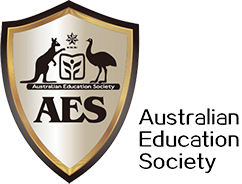Universities and High Education
Higher education courses can be taken to earn an advanced degree and continue your studies in Australia. There are three main types of higher education which lead to Bachelor, Master and Doctoral Degrees.

In Australia it is quite common for students to enrol in a double or combined Bachelor Degree program which leads to the award of two Bachelor Degrees. This is most common in the fields of arts, commerce, law and science.
Australian institutions offer a wide range of courses – from science to management and commerce, humanities to engineering, and law to health sciences. Australian institutions rank among the world’s best by discipline, particularly in engineering and technology, medicine, environmental science, and accounting and finance.
There are 43 universities in Australia (40 Australian universities, two international universities, and one private specialty university). Along with our universities, many other institutions offer higher education courses. You can search for institutions and courses using the Institution and Course Search on this website.
Australian University Rankings

When it comes to world university rankings, Australia has a strong, proven track record. Across all global ranking systems, criteria and fields of study, Australia ranks highly for quality of education, student satisfaction, and global reputation.
There are a number of university ranking systems in use around the world, three commonly used rankings are:
- Academic Ranking of World Universities
- QS World University Rankings
- Times Higher Education (THE) World University Rankings
In fact, eight of Australia’s universities feature in the top 100 ranked universities in the world in the latest QS ranking (2014-15). And if you have a specific study area of interest, there is every chance Australia has you covered, with at least three Australian universities in the top 50 worldwide across the study areas of Arts and Humanities, Engineering and Technologies, Natural Sciences, Life Sciences and Medicine and Social Sciences and Management.
Australia also has 16 universities ranked in the top 100 ‘under 50’ (opens in a new window) in the latest Times Higher Education ranking results (2015).
We are proud of the high university rankings Australian has earned, but more importantly, it’s about what you will receive when you study in Australia – a world-class education and opportunities for an unlimited future.
Apply to Study in Australia
To study in Australia you’ll need to apply for both admission to an institution and also for a student visa from the Australian Government.
There are a number of steps you must go through including:
- Deciding on your preferred course and institution
- Submitting your application to the institution
- Receiving and accepting a Letter of Offer
- Receiving your electronic Confirmation of Enrolment (eCoE)
- Applying for your student visa
There is a range of entry requirements that you will need to meet both for you institution application and your visa application. This can include:
- Academic requirements
- English language requirements
- Evidence of funds to support your study
- Overseas student health cover
If you’re already living or working in Australia, you may still be able to apply to study here as an international student.
Education agents in your home country can also help you with applying to study in Australia.
Our Quality Assurance
Australia has a national regulatory and quality agency for higher education – the Tertiary Education Quality and Standards Agency (TEQSA) (opens in a new window). It was established by the Australian Government to monitor quality, and regulate university and non-university higher education providers against a set of standards developed by the independent Higher Education Standards Panel.
In addition, the following student rights are protected by law under the Education Services for Overseas Students (ESOS):
- The wellbeing of all international students.
- The quality of students’ education experience.
- The provision of up-to-date and accurate information.

